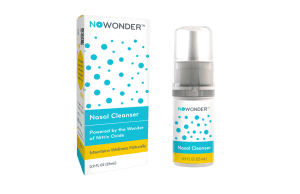 For seniors, getting a good understanding of nutrition essentials is a key for maintaining a good quality of life and goes a long way to reaching the goal of a balanced diet letting you stay healthy into old age. There is an old adage that says “you are what you eat” (well, it might have been an old adage or it could have been something made up by Weight Watchers, but I always remember my mother going on about it to me, so it must be true 🙂).
For seniors, getting a good understanding of nutrition essentials is a key for maintaining a good quality of life and goes a long way to reaching the goal of a balanced diet letting you stay healthy into old age. There is an old adage that says “you are what you eat” (well, it might have been an old adage or it could have been something made up by Weight Watchers, but I always remember my mother going on about it to me, so it must be true 🙂).
As people age, their lifestyles and appetites often change, which can impact the types and amounts of food they consume. A reduced appetite or difficulties in purchasing and preparing nutritious meals may lead to a lower intake of essential vitamins, minerals, and fiber that are important for maintaining health in older adults. Without a good and balanced diet, there may be insufficient intake of the nutrition essentials, which can result in overall poor health or worsen existing chronic conditions.
We asked Dalia Maori, a qualified nutritionist from the UK, to give us her view on achieving a balanced diet with particular focus on seniors. When it comes to vitamins and nutrition she is much better placed than us to give advice. Not everyone has the time and money to see a nutritionist or dietitian personally so we thought we would bring the nutritionist to you.
So here is Dalia…..
Our media is full of nutrition and health news, but not very much of it is directed to the senior members of our society. Considering that the numbers of those who are over 65 years old is increasing, it is a shame to see them so side lined in nutritional research and media.
The truth is that good nutrition is vital at all ages.
Older people are sometimes at increased risk for malnutrition because of limitations that may occur due to advanced age. Sometimes, a food budget is very low, making it harder to buy nourishing food. Alternatively, many widows and widowers find preparing food for one instead of a family demotivating and prefer to snack on something instead. Often, these snacks are minimally nutritious (if not purely unhealthy). Physical limitations such as hip or knee problems can limit a person’s ability to prepare food in the kitchen, making processed, convenience (read: not nutritious) food even more understandably tempting.
Eating a nutritious diet with limited abilities is not so difficult once you know what is possible. The need to have three meals a day in order to be healthy is a myth, a person can do very well on six smaller meals a day, and if a person’s appetite is reduced (common in older age), sometimes small, frequent meals are the best way to get lots of nutrient dense (most nutrition per bite) food in. It is much better to have six very small but nutritionally balanced meals rather than six not particularly healthy snacks.
As mentioned above, many seniors find it hard to cook for one reason or another. To get around this, cook in batches and freeze in small portions. Find what size portion is enough for you and buy some cheap containers or recycle cottage cheese/butter tubs. A recipe that would feed two hungry teenagers might be enough for you to divide up and freeze as six meals that you can spread out and eat over the course of a month. The vitamins you need to stay healthy come from inside the food you eat. If you combine some carbohydrates, protein, and vegetables in each home-prepared frozen meal, then you have instant balanced mini-meals for whenever you need.
Here are some key nutritional components that form part of the nutrition essentials, with some advice on how to get them into the diet with the most ease.
Zinc: Zinc is a very important nutrient required for things like wound healing and proper immune function. It is found in meat, shellfish, beans, whole grains, and pumpkin seeds. Choosing to snack on a few handfuls of raw, unsalted pumpkin seeds daily, having beans on toast, or some meatballs, cooked in a batch and frozen in single portions, is a tasty way to get this nutrient regularly.
Water: Water is obviously vital for life. As a person ages, the body’s ability to conserve water gradually decreases, along with the perception of thirst becoming less acute; this can lead to dehydration, which causes a tremendous decrease in energy and a positive mindset. Making sure you have a lovely supply of herbal and fruit teas is a wonderful way to stay hydrated, and keeping a water bottle nearby can help to track how much water is actually being drunk.
Fiber: It is common to experience constipation in older age. Ensuring adequate fiber and fluids, as well as physical exercise, is very helpful. The best fiber comes in natural foods (as opposed to boxed cereals, which are high in processed fiber, which can irritate the gut): Legumes, fruit, vegetables, and whole grains such as whole barley, quinoa, and brown rice are excellent.
Fat: The wonderful thing about fat is that it is richer in calories than protein or carbohydrate; this means that for a person with a limited appetite, they can get more energy per bite eating it. It is very important to verify that unhealthy fats such as margarine, refined oils, and processed pastries are not the kind of fat to be eating, as they help to promote inflammatory disease. Eating avocados, raw nuts and seeds, and adding extra-virgin olive oil to food is an excellent way to increase the nutrient density of the diet (and they are also delicious).
Calcium: Calcium is a well-known nutrient vital for maintaining bone and nerve health. These days, we’re lucky to be able to buy leafy greens (a good source of calcium) already washed and bagged, so just popping them into a bowl is not too much work, nor is eating a plain, bio yogurt, which is also rich in calcium. Dairy-free diets often provide significantly less calcium than the recommended levels, making it important to find alternative sources, such as supplementation with a reliable Bone Health formulation.
Vitamin D: Vitamin D is a very important nutrient for bone strength as well as immune function. We get most of our vitamin D from the sun, but unfortunately, as we age, the skin is less efficient at processing vitamin D, so it is wise for older people to take a vitamin D3 supplement daily
Creativity and flexibility are very important when trying to get adequate nutrition into a person with eating challenges; don’t give up and allow a poor diet to continue in your life or that of a loved one. I have seen wonderful transformations in mood, energy and mental stability in older patients who have been malnourished. Everybody deserves an enjoyable, tasty, and nutritious diet.
Other tips for maintaining healthy eating habits
Use less salt
A small amount of salt is essential for the body, but consuming too much can lead to higher risks of high blood pressure and heart disease. While salt is naturally present in foods like meat, eggs, milk, and vegetables, the majority of salt in the diet comes from salt added during food processing or at the table.
Older adults are encouraged to limit their consumption of foods that are high in salt, such as cured meats like ham, bacon, and deli meats, as well as snack items like potato chips, savory pastries, and salty sauces like soy sauce. When purchasing food, selecting reduced-salt options is recommended. To enhance the flavor of meals, the use of herbs and spices is suggested as an alternative to adding salt.
Limit foods containing saturated fats and trans fats
Foods like pies, pastries, fried and battered items, as well as snacks such as chips and chocolate, are typically high in saturated fats and may also include harmful trans fats. These types of foods are considered discretionary and should be consumed only rarely.
People who enjoy desserts can focus on making them more nutritious by avoiding options high in sugar, saturated fats, or trans fats. Healthier choices might include fresh fruits paired with yogurt or custard for added sweetness and flavor. For baked goods like crumbles or cakes, using wholegrain or oat-based ingredients can provide a more wholesome alternative.
Be careful with alcohol
To minimize the risks associated with alcohol consumption, it is recommended that healthy adults limit their intake to a maximum of ten standard drinks per week and no more than four standard drinks in a single sitting. However, it has been proven that there is no safe limit of alcohol, and if it can be avoided altogether, that would be the better option.
Vitamins and minerals
Doctors or dietitians may suggest vitamins and mineral supplements to address specific nutrient deficiencies. These deficiencies are fairly common among older adults, often caused by a decreased appetite or digestive problems linked to illnesses or medications. For a good all-arounder, the His Essentials Pack and the Her Essentials Pack contain a broad range of nutrients and can cover most of a person’s daily needs.
For individuals in good health, vitamin and mineral supplements are not a substitute for a balanced diet. Consuming a wide range of foods from the core food groups is the best way to obtain essential nutrients.
Exercise
Weight-bearing exercises like walking or using light weights can help improve bone health. It is recommended to consult a general practitioner or a healthcare professional to explore suitable local exercise options.
Arthritis
For individuals with arthritis, it is recommended to eat a balanced diet that includes a variety of nutritious foods and to work towards maintaining a healthy weight. Excess weight can put additional strain on weight-bearing joints like the hips, knees, and ankles, which may worsen pain and discomfort.
Including fish in the diet at least twice a week may provide benefits for managing rheumatoid arthritis due to the properties of fish oils. For those seeking additional guidance, consulting a general practitioner or a dietitian can help explore dietary changes that might reduce arthritis-related discomfort.
Healthy teeth and gums
Healthy teeth and gums are important for enjoying meals and maintaining proper nutrition. Issues such as missing teeth, painful gums, or poorly fitting dentures can make chewing difficult, which may lead to changes in diet and portion sizes. This can increase the risk of nutrient deficiencies and negatively impact overall health.
Regular dental checkups and properly adjusted dentures are essential for maintaining the ability to enjoy a wide range of foods and drinks without limitations. It is important to consult a dentist whenever issues arise with teeth, gums, or dentures to address any discomfort or difficulties promptly.
Every meal and snack can be an opportunity to prioritize better nutrition. Finding ways to enhance a diet to align with individual preferences, abilities, and daily routines is essential, even if it involves seeking help from friends, family, or community resources. Support services available through doctors, health centers, hospitals, or local councils can provide valuable assistance within the community.
FAQs
What is the best nutritional supplement for seniors?
Dietary supplements can play an important role in supporting the health of older adults. While it is best to seek the advice of a healthcare practitioner to determine individual needs, some supplements that older adults could consider are: Calcium, with vitamin D, to help maintain strong bones and reduce the risk of fractures. Vitamin D is also essential for bone health and overall well-being. Vitamin B6 is needed for the production of red blood cells, while vitamin B12 helps keep both red blood cells and nerves functioning properly. These nutrients are especially important for older individuals to maintain their health and vitality.
What are the key nutritional essentials older adults should learn?
Stay away from fried foods and opt for healthier cooking methods like broiling, grilling, or boiling. To keep your bones strong as you get older, try drinking low-fat or fat-free milk, or alternatives like soy, almond, or rice drinks that are fortified with vitamin D and calcium. Don’t forget to stay hydrated by drinking plenty of fluids throughout the day.
What is the best protein supplement for seniors?
Whey protein powder, made from milk, is worth considering if looking to support muscle growth. Studies show that whey protein is more effective at helping older adults build muscle compared to plant-based proteins or casein, another milk-derived protein.
What’s the best breakfast for seniors?
A healthy option includes a balance of carbs, protein, and fats to fuel your day. For example, pairing eggs with some toast and fresh fruit is an easy, tasty way to get a balanced diet packed with the nutrition essentials needed in the morning.
Which food is not recommended for senior citizens?
Fried foods can be particularly harmful to seniors because they contain high levels of unhealthy fats, like saturated and trans fats. These fats can raise the risk of serious health problems, such as heart disease, strokes, and Type 2 diabetes. Eating fried foods too frequently can also lead to obesity and other related health concerns.












